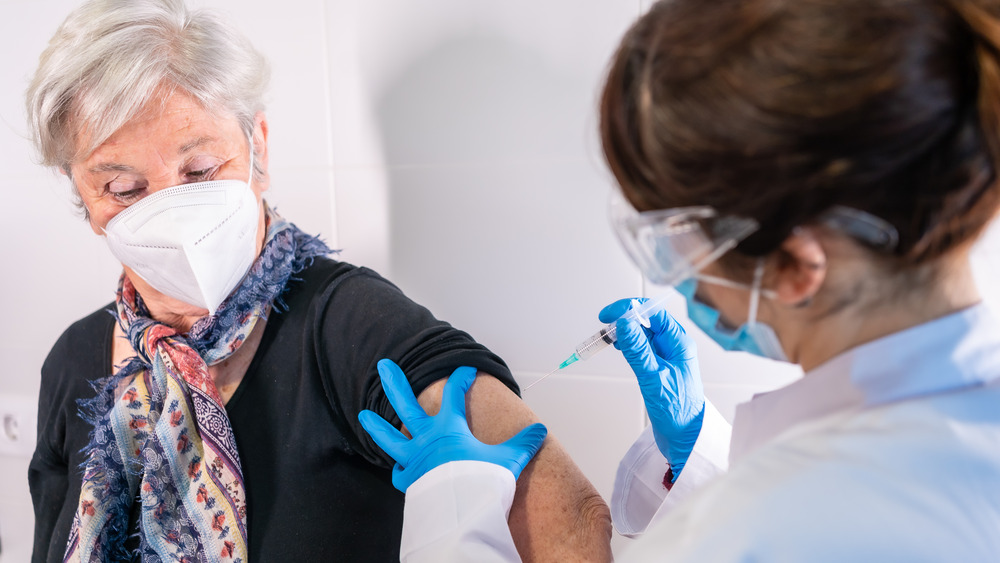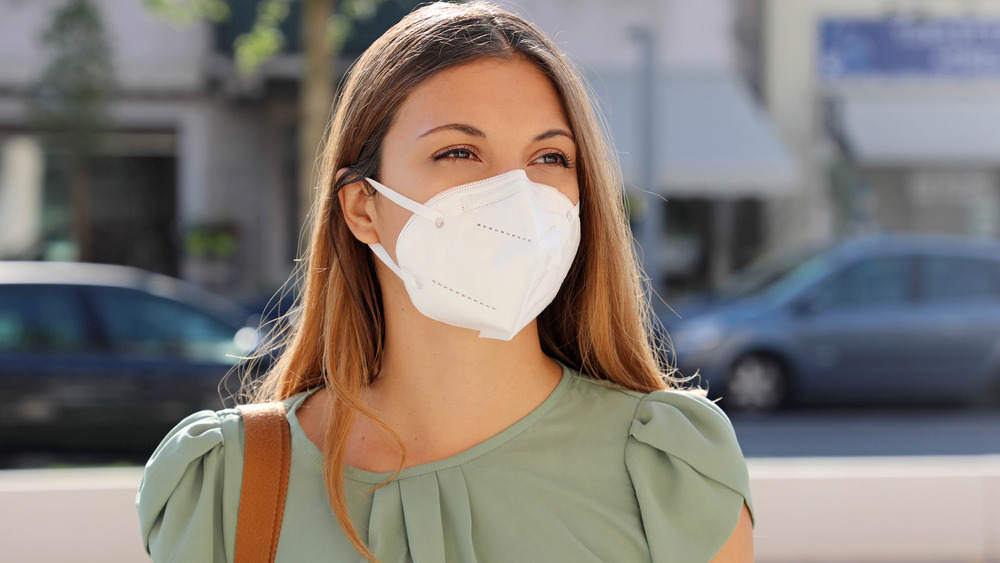This Is How Long Pfizer Says Vaccine Immunity Lasts So Far
As of this week, more than 150 million COVID-19 vaccines have been administered throughout the United States, according to the Centers for Disease Control and Prevention (CDC). Vaccines are a critical piece of the puzzle which will help bring the COVID-19 pandemic to an end. Currently there are three COVID-19 vaccines approved for emergency use authorization by the U.S. Food and Drug Administration (FDA) and all have been found to help prevent the spread of the disease, and provide protection against severe disease and even death from COVID.
While clinical trials are still in progress for all vaccine brands, Pfizer recently released some new —and encouraging — findings. Currently in phase three trials, Pfizer has determined that it's vaccine offers protection against COVID-19 for at least six months after the second dose is administered (via CNN). They determined that their vaccine remained "more than 91 percent effective against disease with any symptoms for six months." Pfizer also found that their vaccine was highly efficacious against the South African variant even after six months, which is encouraging news in light of the increasing number of circulating variants. Like so much about this virus, the length in which natural and vaccine immunity can last is still somewhat unknown. The longer vaccines are available in the U.S., the more data can be collected and then analyzed.
Natural immunity may last up to eight months
While vaccines are one way to immunize people, individuals who have contracted COVID-19 also develop what is known as "natural immunity." Those who have been infected with COVID-19 — even mild cases — have been known to retain natural immunity for up to eight months after initial infection (via the National Institutes of Health). Individuals who have natural immunity will help the nation achieve herd immunity, which is achieved when a majority of the population has immunity, and, according to Anthony Fauci, M.D., head of the National Institute of Allergy and Infectious Diseases, that will be possible if 70 to 85 percent of the population gets vaccinated.
With other infectious diseases such as influenza or the flu, vaccinations are recommended annually. This is because the influenza virus mutates rapidly and the vaccine created for the dominate strain one year, may not offer protection to the subsequent years' strains. Doctors and scientists have been speculating that this may also be the case with COVID-19. However, Paul A Offit, M.D., director of the Vaccine Education Center at the Children's Hospital of Philadelphia, spoke to Medscape and reported that while SARS-CoV-2 mutates like most other viruses, it does so at a rate much slower than the flu. This is also encouraging news, but ultimately time will provide more answers on just how frequently people may need to be vaccinated against COVID-19.


